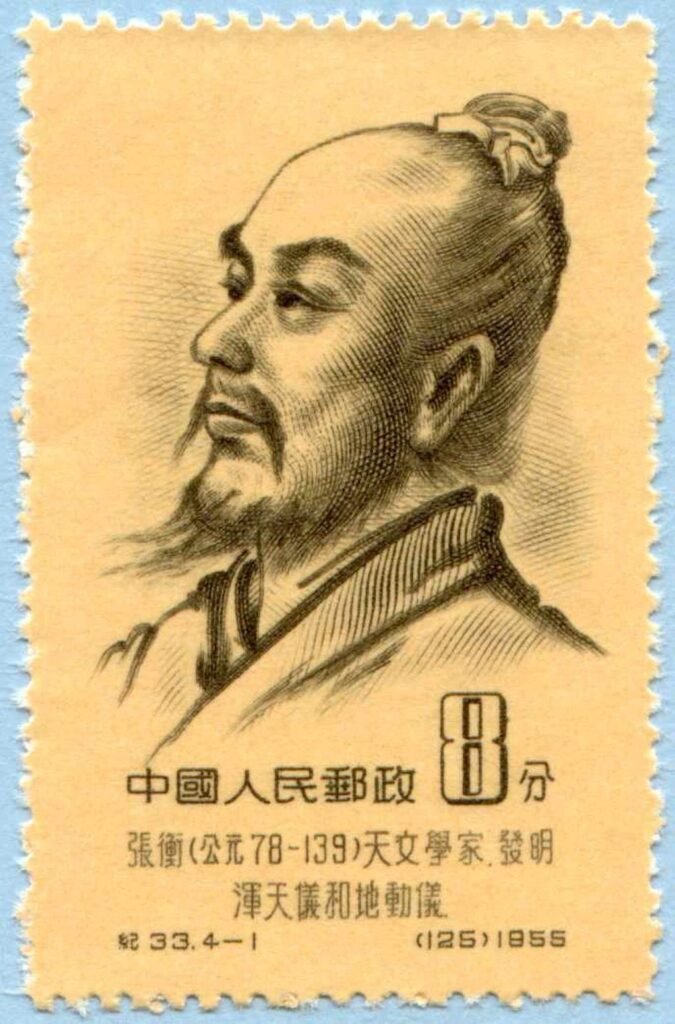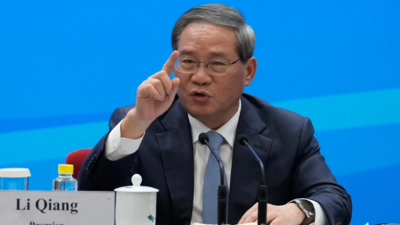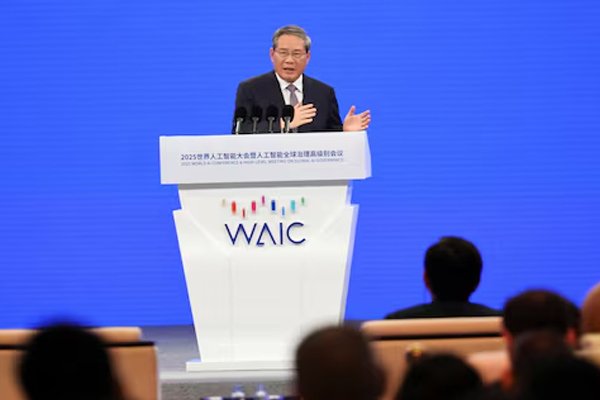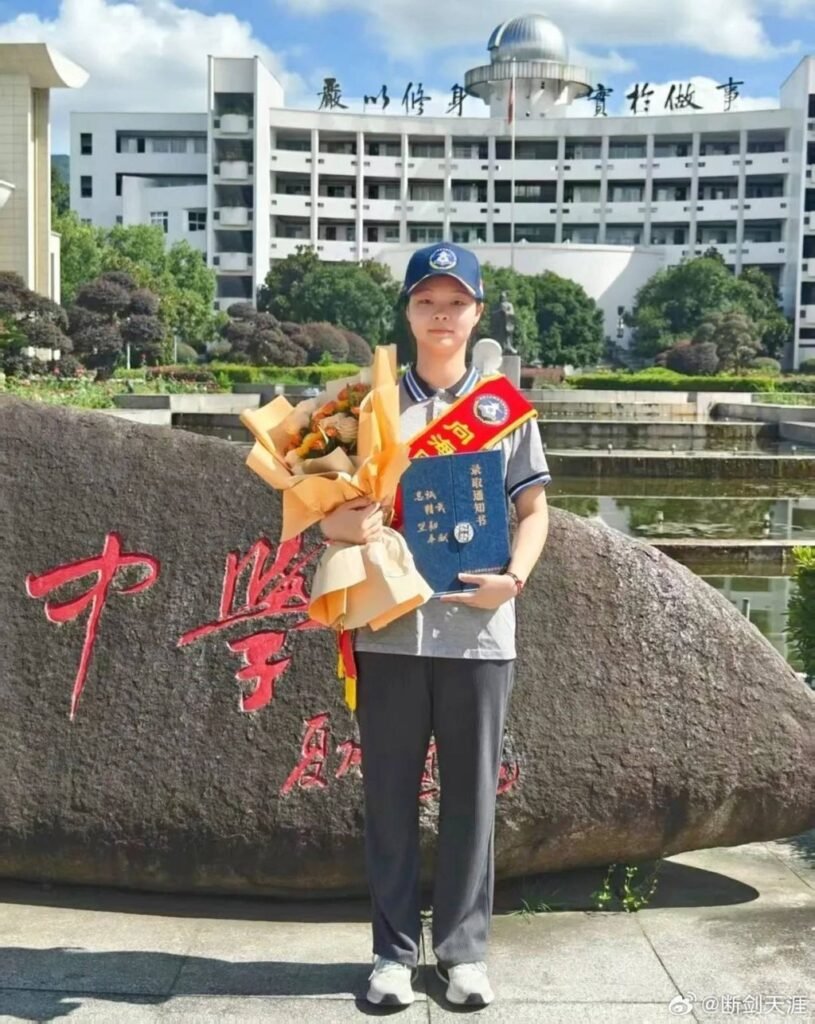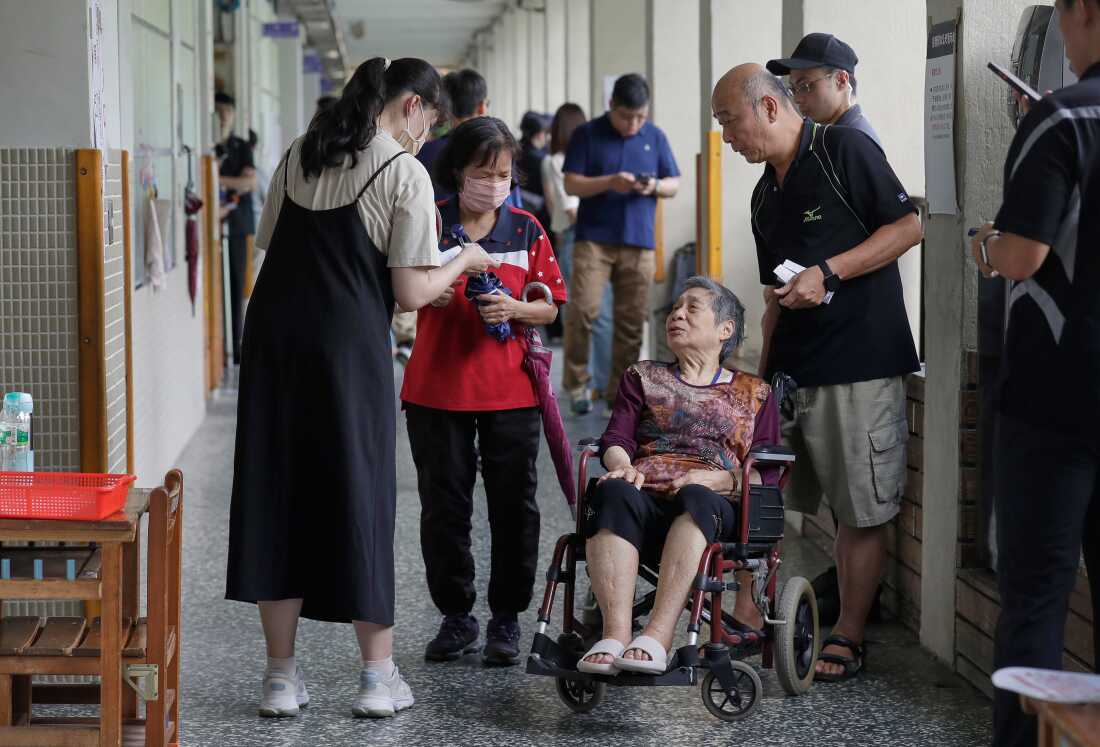
Taiwanese people go to vote at a polling station in Taipei, Taiwan, on Saturday to determine whether to oust about one-fifth of their lawmakers, all from the opposition Nationalist Party, in elections.
ChiangYing-ying/AP/AP
hide caption
toggle caption
ChiangYing-ying/AP/AP
Taiwanese voters rejected a bid to oust about one-fifth of their lawmakers, all from the opposition Nationalist Party, in a recall election Saturday, dampening hopes for the ruling party to flip the balance of power in the self-ruled island’s legislature.
The independence-leaning ruling Democratic Progressive Party won last year’s presidential election, but the China-friendly Nationalists, also known as the KMT, and the smaller Taiwan People’s Party have enough seats to form a majority bloc.
While vote counting was still underway, preliminary results showed that the recall efforts failed to remove any of the two dozen KMT lawmakers, with most defeated by sizable margins. The scale of the recall elections is unprecedented, with another seven KMT lawmakers facing similar votes on Aug. 23.
If the August vote’s results are also unfavorable to the DPP, the outcome signals that the government of Taiwan President Lai Ching-te could continue to face strong resistance from within the legislature before the next elections, which are expected to take place in 2028.
“An uphill battle”
Despite their huge effort, those backing the recall were facing an “uphill battle” in trying to unseat lawmakers in well organized, strongly KMT districts, said Lev Nachman, a professor of political science at National Taiwan University and expert on Taiwan’s elections.
The result is going to make it even harder for Lai to push his agenda forward, especially ahead of local elections next year, Nachman said.
“At the moment, there is very little Lai can do other than try to think of other creative ways to appeal to the public,” he told The Associated Press.
Fu Kun-chi, one of the most powerful and controversial lawmakers targeted, said the result left Lai with no option other than to meet with the opposition and “find a way for Taiwan to proceed in a more stable way in this chaotic world.”
Both sides say they are for democracy
Those who support removing the 24 lawmakers were angry that the KMT and its allies have blocked key legislation, especially the defense budget, and passed controversial changes that are seen as diminishing the power of the executive and favoring China, which considers the island its own territory.
The opposition parties’ actions sparked concerns among some Taiwanese about the island’s democratic integrity and its ability to deter Chinese military threats, leading to the recall campaigns.
But the KMT alleged the ruling party was resorting to political retaliation after it lost the legislative majority, saying the recalls were undermining and challenging Taiwan’s democratic system.
The KMT holds 52 seats, while the ruling DPP holds 51 seats. For the DPP to secure a legislative majority, at least six KMT lawmakers would need to be ousted, and the ruling party would need to win the by-elections, which must be held within three months of the announcement of results.
For the recall to pass, more than a quarter of eligible voters in the electoral district must vote in favor of it, and the total number of supporters must exceed those voting against.
The poll closed at 4 p.m. local time. Taiwan’s Central Election Commission will announce the official results on Aug. 1.
Tensions flared over the poll
The elections have intensified tensions between those backing the status quo and those favoring improved ties with Beijing. Critics accuse China-friendly politicians of compromising Taiwan and take issue with their meetings with mainland Chinese politicians. But these Taiwanese politicians claim their connections are vital for dialogue given Beijing’s refusal to interact with the DPP.
When asked about the recall election, China’s Taiwan Affairs Office spokesperson Zhu Fenglian said in June that since the administration of Lai came into power, it has sought to achieve “one-party dominance” and practiced dictatorship under the guise of democracy, state broadcaster CCTV reported. The office is a branch of China’s ruling Communist Party government, which itself maintains strict one-party rule.
Zhu said that Lai’s government has spared no effort in suppressing opposition parties and those who supported the development of cross-strait relations.
Taiwan’s mainland affairs council said Wednesday that the Chinese authorities and state media had tried to blatantly interfere with the vote.

